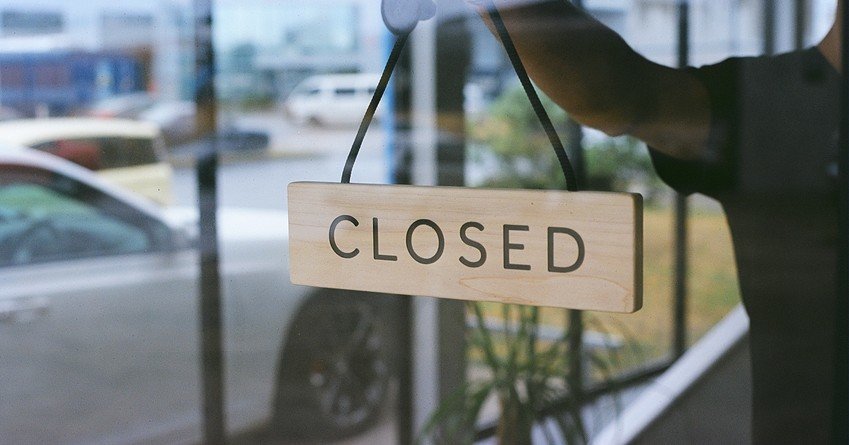
Will McCallum, 26, is half of the duo behind the self-named company. He says George & Willy is about putting thought into creating attractive and functional items, including things commonly found in retail stores. Alongside the company’s furniture and smaller items clearly targeted at consumers are a highly durable commercial clothing rack; a round aluminium exterior sign and a double-sided open and closed sign. The latter was launched last week.
McCallum says this extension into trade supply was never planned – he and George Wilkins simply made items they felt were necessary, based on their own needs and experiences. Some of these items were for shoppers, and others were relevant to his and Wilkins’ experience as retailers.
“You see a beautiful store with a laminated sign and you go, ‘We could make that out of wood and it’d look really nice,’” he says.
The open/closed sign is handmade by Wilkins and McCallum using Lawson cypress wood and yachting braid.
_large.jpg)
Their round sign was created after he and Wilkins decided they wanted one for their workshop: “We asked around, but couldn’t find one anywhere.”
They realised that many companies in New Zealand sported round logos, and so put the sign into commercial production.
It’s the small details that matter in retail, says McCallum:
“If you open a store, it kind of represents who you are… [Decorating it] is like buying a nice hat or a nice bag.”

George & Willy’s brown paper rollers are the company’s “bread and butter”, says McCallum. The signs sit in the company’s sweet spot, appealing to both commercial outfits such as cafes, and private customers who hang them in their home. McCallum says the financial security the rollers’ popularity offers allows the company creative breathing space.
He and Wilkins are currently planning a wholesale collection, and look forward to releasing “heaps” of new items over the next month or two. McCallum says that as George & Willy’s popularity with offshore customers grows, it is looking to grow the percentage of smaller items among its mix. Prohibitive shipping costs mean that the company’s furniture is less attractive to these shoppers.
“No way is somebody from Switzerland going to get a project desk shipped all the way there.”

Currently, however, McCallum’s got doors on his mind. He’s working on a door pulley system similar to one that was knocked together to keep sawdust from the workshop out of George & Willy’s on-site office, and believes the commercial version would be useful for cafes in winter.




